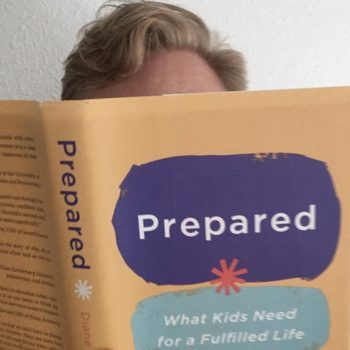How strongly do I recommend Prepared?
8 / 10
Review of Prepared
Software engineering is about learning, so why not study how learning actually happens? Although this book is about children and our education system, many concepts apply to tech companies and people leadership. Definite thumbs up book for Engineering Managers.
This isn’t your typical book complaining about the woes of our educational system. Diane Tavenner brings a pragmatic and optimistic voice based on experience founding and leading a high-performing school network, Summit Public Schools.
Top Ideas in This Book
- The building blocks for learning are transferable habits like resilience and self-awareness, applicable to multiple contexts and life stages
- Don’t mistake class progress for individual progress
- Many parents intervene too early to prevent failure
- Reflection is a missing component in our traditional grading model
- Project-based work should be the entree not the dessert
- Ask “what do you like doing?” not “what do you want to be?”
- Successful education models do not rely on heroics from individual teachers
- Parents often assign kids tasks, but fail to ask kids to solve a problem
- Learning begins with curiosity, but you cannot manufacture or mandate curiosity
- Demands on teachers eliminate the opportunity for collaboration
The building blocks for learning are transferable habits like resilience and self-awareness, applicable to multiple contexts and life stages
Tavenner provides a visual pyramid and model five-part model for the building blocks of learning that include:
- Independence and sustainability
- Perseverance
- Mindsets for self and school
- School readiness
- Healthy development
Don’t mistake class progress for individual progress
Whether in a work team context or school, it’s easy to see the group progressing and assume that each individual within the group is also progressing. However, you may have individuals experiencing stagnation or regression despite the group’s overall progress.
As an engineering manager, this is where growth frameworks really help guide performance review conversations. A growth framework is a rubric to assess skill level across key competency areas such as Code Quality, Reliable Delivery, and Architecture. Using this rubric, you can assess each individual’s progress using consistent and objective criteria.
Many parents intervene too early to prevent failure
Parents see potential downstream consequences of early failure, so they intervene to prevent any failure from happening. In doing so, they prevent their child from learning.
Getting too involved is a common mistake among both parents and people managers. You see the work being done differently than you would perform it, so you intervene, take over, and push the student out of the way. Instead you should focus on letting them try and coaching them through the work as needed.
Reflection is a missing component in our traditional grading model
As a manager in 1:1s, I often push my colleagues to reflect on their own performance and work because I want. Schools don’t have a similar reflection period or requirement – all assessment is done by teachers and not the students themselves.
Project-based work should be the entree not the dessert
Projects are often presented as a treat, something that entices you to complete monotonous work and study. But projects are actually the place of deep learning, where students fully engage into a problem with opportunities to apply curiosity and creativity.
Ask “what do you like doing?” not “what do you want to be?”
Tavenner calls these “ing” words and they help us focus on the work and actions we enjoy over job titles and career milestones.
Successful education models do not rely on heroics from individual teachers
Individual heroics are a laudable but potentially destructive behavior. We see this frequently in software engineering, where a heroic developer will work through the night to meet a deadline.
Parents often assign kids tasks, but fail to ask kids to solve a problem
Task completion is necessary, but should be in service of learning.
Engineering managers experience a similar challenge. We assign junior developers explicit tasks. As that person demonstrates competency and capability, we should broaden our requests to include more problem solving. Both task completion and problem solving should serve the individual’s growth and in a work context, the team’s progress toward goals.
Learning begins with curiosity, but you cannot manufacture or mandate curiosity
Tavenner provides an example that resonates with me – a student learning statistics through fantasy football. Educators need to tap into natural interest areas for their students and for more info on that I suggest reading Lifting the Barriers.
Demands on teachers eliminate the opportunity for collaboration
The environment teachers work in scarcely looks like that of successful product companies. Where product companies focus on collaboration and iteration, educational institutions kill those opportunities.
